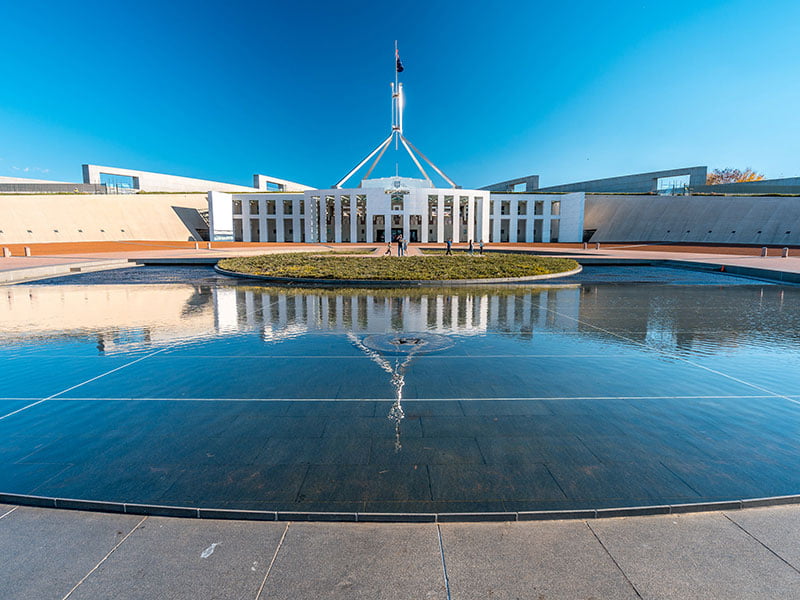The Digital Transformation Agency did not follow procurement rules when establishing its Digital Marketplace and the processes behind it are “still not robust”, according to the national audit office.
The Australian National Audit Office (ANAO) released its report on the use of ICT-related procurement panels and arrangements on Monday, covering the Digital Marketplace and the IBM whole-of-government arrangement, which was negotiated by the Digital Transformation Agency (DTA).
It found that the DTA did not comply with the Commonwealth procurement rules when establishing the marketplace in 2017 in relation to the value for money outcome, and also did not treat all suppliers equally.
The ANAO did however find that the DTA engaged in “sound practices” as outlined in Department of Finance guidelines when it established the marketplace.

While these issues had now been rectified, the audit office still found that the process of joining the Digital Marketplace is “still not robust”, according to the audit.
The report also found that anticipated savings from the huge IBM deal, which was signed in mid-2018 and is worth up to $1 billion, have not yet been achieved, and that the DTA should have been “more active” in identifying risks and probity arrangements.
The ANAO recommended that the DTA ensure that marketplace suppliers are treated equitably and are appointed on the basis of a value for money assessment, and that its staff overseeing complex procurements have sufficient understanding of the procurement requirements, the nature of the arrangements being established, and procurement-related risks.
The DTA has agreed with both recommendations.
“The DTA will continue to take steps to improve the establishment and management of its panels in line with the ANAO’s findings. The DTA supports the recommendations tabled by the ANAO,” the agency said in response to the report.
The Digital Marketplace emerged from the Coalition’s National Innovation and Science Agenda of 2015 and was launched in its current form in early 2017 via a request-for-proposal on AusTender.
Its aim is to provide better access to government digital and IT contracts for Australian SMEs.
Against official procurement rules, the approach to market for marketplace suppliers “made no reference to DTA appointing sellers on the basis of a value for money assessment and did not require potential suppliers to provide price information based on the intent of developing a digital marketplace in which prices could fluctuate subject to demand”, the ANAO report found.
This error was identified in late 2017, and the DTA conducted a “value-for-money refresh” of the Marketplace through a revised approach to market in June 2018. It also started requiring sellers to provide information on price and the need to conduct a value for money assessment.
The DTA also did not have a probity plan, risk management plan or tender evaluation in place before it launched the marketplace, with these eventually signed more than a year after it was established.
While the marketplace now meets Commonwealth procurement rules, more could be done to improve it, the audit office found.
“While DTA’s new process is sufficient to achieve compliance with the minimum requirements of the CPRs, its consideration of price, quality and risk could be more robust to better demonstrate that its evaluation of suppliers supports the achievement of value for money outcomes,” it said.
The office found that those applying to join the marketplace panel are allowed multiple attempts, with the DTA providing feedback on where improvement is needed, and that referees are “routinely not contacted”.
Tenderers are required to provide a single maximum price which they are required to not exceed unless certain conditions are met, but this is only available to buyers upon request.
“This means that buyers who do not ask DTA for the specific price information can only use the summary of daily rates on the Digital Marketplace to guide their decision-making regarding which panellists to approach,” the report found.
In terms of the IBM deal, the ANAO found that the DTA did largely comply with procurement rules, but “given the scale and scope of its procurement arrangements, DTA should have been more active in identifying and managing key risks and probity arrangements in the establishment process”.
In the initial stages of brokering this deal, the DTA treated it as a project to establish a contractual framework rather than procurement, meaning that processes like fit-for-purpose risk management and probity arrangements were “lacking”, the ANAO said. It also found that the agency “lacked capability” to engage effectively with the global tech giant.
Due to this and the issues around the Digital Marketplace, the ANAO recommended that the DTA provide more training to its staff around procurement.
“The misunderstandings evident in the establishment of both arrangements indicates a need for DTA to ensure that officials undertaking complex procurements have sufficient understanding of key issues, such as framework requirements for specific procurement arrangements and the related risks,” it said.
The DTA also agreed to this recommendation.
Do you know more? Contact James Riley via Email.

